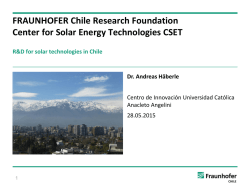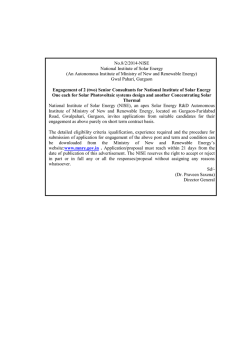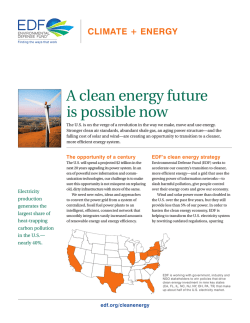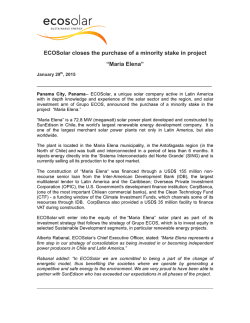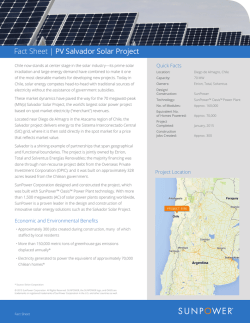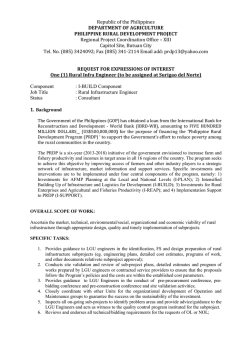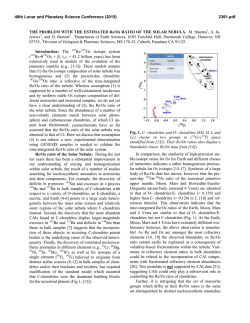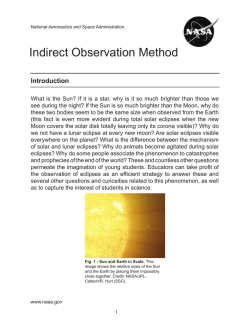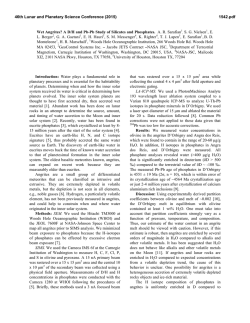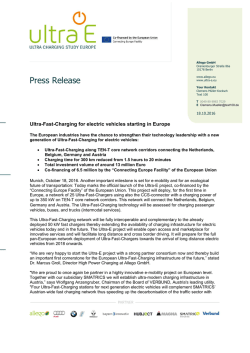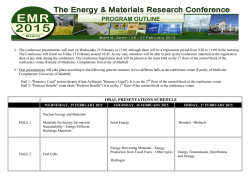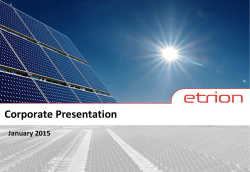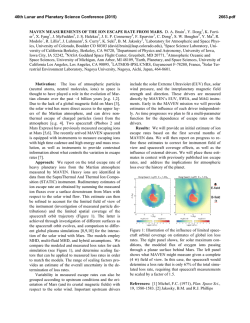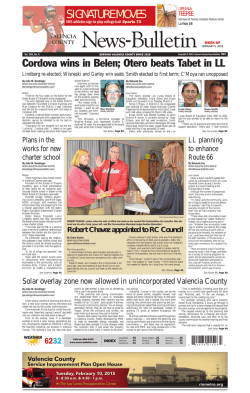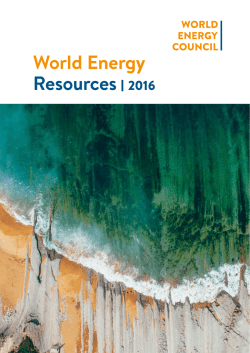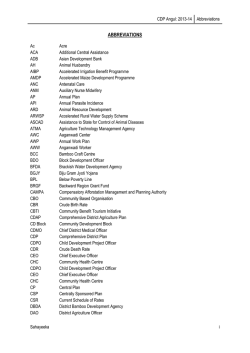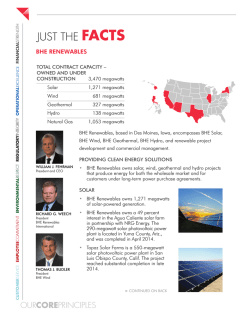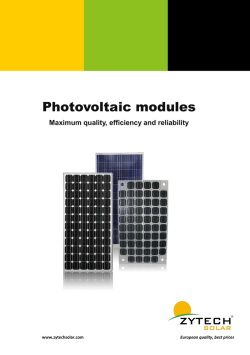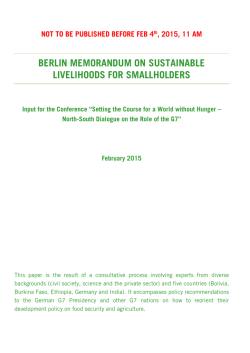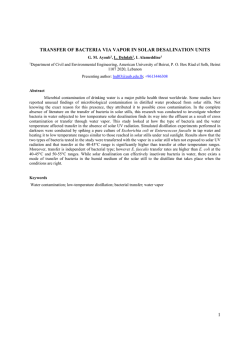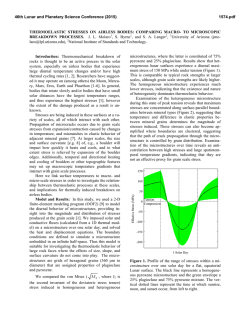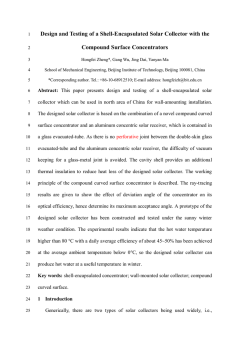
download file - The New Times
cooking, which causes severe eye and lung conditions and puts a strain on woodland resources. Will energy access be the next challenge for Rwanda in the post -15 development agenda? According to a study published in the Economic Development and Poverty Reduction Strategy (EDPRS) in 2013, the lack of electricity in rural areas is a serious constraint to the growth of small and micro enterprises that represent 99.5% of private sector firms, resulting in low return, structural rural poverty, gaping rural-urban inequality and unrealized economic potential. While the Rwandan government’s plan to extend the electricity grid to cover 50% of households by 2017 is commendable and will partly fill this gap, 6 million people will still lack electricity access, especially in rural areas. Since Rwanda’s hilly geography contributes to making grid-extension expensive, the government recognized the need to invest in off-grid energy solutions such as small hydro plants and solar mini-grids, which represent an attractive cost-effective option for rural households in isolated areas. This is a unique opportunity for the private sector to play a bigger role in filling the gap and serving millions of un-served people in rural communities. A team of indigo solar light distributors in Nyagatare district displaying the lamps after a promotional event sponsored by GVEP With the UN Millennium Development Goals’ deadline approaching, Rwanda can be proud of its achievements in meeting the targets in almost all areas. Rwanda’s success has been driven by the country’s determination to use the Goals to develop ambitious but concrete strategies, prioritizing growth acceleration and poverty reduction through economic transformation, rural development, productivity and youth employment, as well as accountable governance. As a result, over the last decade, real GDP growth averaged at about 8% per annum; poverty rate has dropped from 59% to 45%; more than 95% of children now have access to primary education; infant mortality dropped to 61%; and three quarters of the population gained access to drinking water. While the Rwandan government has a lot to celebrate, this couldn’t have been achieved without the commitment and hard work of entire communities that took charge of their own lives and developed home grown solutions. As a matter of fact, decentralization has been a cornerstone of Rwanda’s approach to development and is proving more successful than traditional top-down methods. Against this backdrop of success, what is in store for the country, as the World leaders meet to define the Sustainable Development Goals for the next decade? Could energy – the missing MDG, the ‘enabler’ for Development organization GVEP International has been working alongside Rwandan energy businesses and local authorities to do just that: to support the development and growth of private sector initiatives that deliver energy products and services to some of those 6 million people. Water and sun are natural resources that Rwanda enjoys in abundance. Flow from steep mountain rivers can be converted into electricity; solar energy can be harvested through the day to power photovoltaic home systems, portable lamps and mobile phone charging systems can provide people, even in the remotest areas, with affordable solutions to their energy needs. Over the last 2 years GVEP has been working with 270 solar phone charging businesses, 5 distributors of solar phone charging equipment, 30 solar home system distributors Alphonsine Nyirahabimana a fter getting the award (a cheque of 200 thousand rwandan francs) from the Minister of Trade and Commerce all the Goals – provide a framework for bringing development one step further? The critical role that energy plays in eradicating poverty, increasing food production, providing clean water, improving public health, empowering women and addressing climate change, has been widely recognized and unanimously confirmed. First through the Sustainable Energy for All (SE4ALL) initiative and more recently through the United Nations General Assembly’s declaration of the Decade of Sustainable Energy for All (2014 2024). Securing sustainable energy for all represents a real challenge for Rwanda but also a unique opportunity for the Government, local communities and the country’s private sector to work together to achieve this goal. Currently, only 22% of the population in Rwanda has access to electricity and that number is considerably inferior in rural areas, where 80% of the population lives. Most of the rural population still relies on candles or kerosene for lighting which provide poor illumination, as well as being health and fire hazards. About 95% of households use biomass fuel (wood or charcoal) for Nyundo Amahoro Energy Hydro project and 15 pico and small hydro developers. These businesses have been offered a range of business training, technology and marketing mentoring and access to capital advice. Altogether these businesses have provided sustainable and affordable energy services to over 7600 people in Rwanda. Alphonsine Nyirahabimana, coming and operating from Gisagara District in Southern Province, is one such entrepreneur reaping the benefits of this new emerging market. At the age of 33 she was congratulated by the Minister of Trade and Commerce Hon. Francis Kanimba for her successful solar phone charging business and for providing vital services to her community. She started her business in 2011 with no prior skills and an initial capital of 50000 Rwf ($72). GVEP’s team showed her where to find good technical equipment, how to keep records to run her business profitably, how to market her services and provide good customer relations. She now earns up to 150000 Rwf (217$) monthly and has even opened up a second solar phone charging outlet. Her business serves 120 people in neighbouring communities and avoids them travelling long journeys to distant charging locations. The benefits of supporting the solar home system market go beyond increased income for micro businesses: it also extends to distributors and installers. Amri Hategekimana, Managing Director of Serve and Smile, a local company contracted by Azuri Technologies to distribute the Indigo solar systems in Rwanda, says that their distribution network has created employment for over 30 sales agents and over 60 installers. The income earned from each installation and the sale of scratch cards has had a huge economic impact. Mukankiko Dative, an Indigo solar lights sales agent in Rulindo District, explains how the solar home systems benefit all members of the community. “Evening family outings are now possible with Indigo solar lights, without fear of ending stranded in the dark. With over 6000 units already installed, many families in rural areas can now work after dark and charge their mobile phones.” GVEP has also been supporting a number of local private companies to develop mini and pico hydropower plants. Amahoro Energy, a company operating in Rwanda, is developing a mini hydro power project with an estimated capacity of 3 MW along the Nyundo river. GVEP carried out some feasibility studies and provided technical and capital access advice, as well as business planning and financing strategy support to their team. Once finished, the plant will connect 30,000 households with electricity, providing access to reliable and sustainable energy to over 100,000 people. These initiatives are just a few examples of the huge potential that bridging the energy access gap presents to the private sector, investors and government agencies alike. The next decade will be crucial in finding innovative and more efficient ways to deliver energy to off-grid communities and accelerate development in all areas of human experience.
© Copyright 2026
